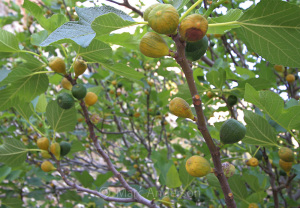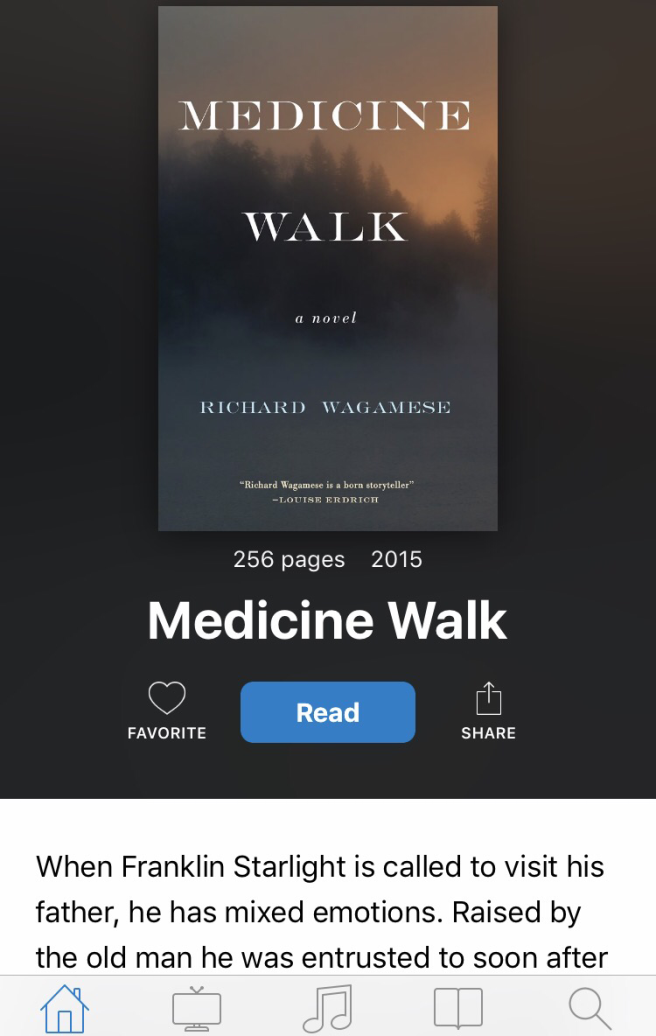Here is truly an Israelite in whom there is no deceit!
Nathanael was a follower of John the Baptist. So was Andrew and Philip. So Philip came to his friend Nathanael all excited. “We’ve found him! We’ve found him! The One!”
And Nathanael’s response was “… and that would be who?” And when he heard that it was the son of a carpenter from Nazareth, Nathanael says to Philip, “Now think about this. Can anything good come out of Nazareth?” It was a no-place, a bit like Murphy, Idaho, the county seat of a desert county with about as much land area as New Jersey, near where I grew up. The main notable feature about Murphy was that it had one single parking meter.
Nothing in scripture or tradition spoke of Nazareth, there were no prophecies about the town, no prominent families or powerful associations. Nobody expected the Messiah or anything else good to come from Nazareth. Nathanael wasn’t so much swayed by the enthusiasm of friends, and he didn’t go along with what Philip said just to be polite. As a follower of John the Baptist, he took this Messiah stuff pretty seriously, and there is no reason to just take the word of someone who has gotten all emotional, even if he is a friend.
Philip says, “Come and see.”
One of the most puzzling exchanges in scripture is what happens next. I think there are pieces left out that would have made more sense to people who knew more about the followers of John the Baptist than we know today. Jesus sees Nathanael coming and he says—“There’s an Israelite in truth, but without deceit.” The first person who had the name Israel was the Patriarch Jacob, who was well-known for deceiving everybody—he tricked his brother, his father, his father-in-law… Yet Jacob also wrestled with the angel of God and received the vision of the ladder to heaven, access to the way and presence of God. So Nathan is Israel without the tricks.
When Jesus says this, Nathanael perceives that he somehow knows him—“Teacher, where did you get to know me?” The answer to Nathanael’s question is cryptic: “I saw you under the fig tree.”
Fine. He saw him under the fig tree. To our modern ears it sounds like Jesus saw Nathanael standing in the shade. But it meant something different to those in the time of John the Baptist.
Commentators have a lot of theories, and most of them admit they are all speculation. Here’s something that people back then who knew a bit about John the Baptist and his followers and who knew their scripture would know: The prophet Zechariah (who just happened to have the same name as John the Baptist’s father) had prophesied about six centuries before, as the people of Judah returned from the exile in Babylon. He was encouraging the rebuilding of the Temple in Jerusalem. He spoke of a messianic figure, called the Branch. And at one point he writes this: “I will engrave its inscription, says the Lord of Hosts,
 and I will remove the guilt of this land in a single day. On that day, says the Lord of hosts, you shall invite each other to come under your vine and fig tree.” So Jesus’ reply to Nathanael is “I saw you under the fig tree.” I think that Nathanael heard in that statement the fulfillment of that prophecy, “I will remove the guilt of this land in a single day.” The image of being under your own vine and fig tree is one of restoration of a tranquil and prosperous life, a life of peace and hope. The vision of hope for Nathanael and God’s people.
and I will remove the guilt of this land in a single day. On that day, says the Lord of hosts, you shall invite each other to come under your vine and fig tree.” So Jesus’ reply to Nathanael is “I saw you under the fig tree.” I think that Nathanael heard in that statement the fulfillment of that prophecy, “I will remove the guilt of this land in a single day.” The image of being under your own vine and fig tree is one of restoration of a tranquil and prosperous life, a life of peace and hope. The vision of hope for Nathanael and God’s people.
Our psalm for today says, “Lord, you have searched me out and known me; you know my sitting down and my rising up; you discern my thoughts from afar.”
Jesus knew. He knew that Nathanael longed for the Kingdom of God, he longed for that time when everyone would share hospitality under his own vine and fig tree. Nathanael, the Israelite with no deceit turns to Jesus and says, “Rabbi, you are the son of God! You are the King of Israel!”
We live in God’s kingdom, and that is not a kingdom of wishful thinking or pretending that things are how somebody thought they should be. We are known by God, our lives and our hopes are knit together by God. But, in Jesus, those hopes aren’t just any fantasy we might have, nor do difficulties and distractions just fade away. Nathan says to Jesus that he is “the King of Israel.” And that would be how he envisioned the Messiah’s coming. Jesus knew Nathanael, and loved him, and invited him to follow. But that following was not to indulge what Nathanael imagined he wanted or was going to get, but the reality of the Kingdom of God, of Jesus’ road, not just to Galilee to preach and teach, but to Jerusalem, to face and defeat the powers of death. “You will see greater things than these, Nathanael, you will see heaven opened and the angels of God ascending and descending upon the Son of Man.”
This weekend we remember a man who Jesus knew and invited to follow him. The Rev. Dr. Martin Luther King, Jr. spoke directly, without guile or deceit about his experience and that of his people. It was never easy, and the outcomes of standing up for justice and fairness were never unambiguous. Much of what Dr. King hoped for has not been realized in the way that he wished, and certainly not as soon as he wished. Racism is still common in our country and comes to the surface in disturbing ways, even for those of us who might be more likely to be beneficiaries of the effects of racism, rather than to suffer. Dr. King’s witness, of standing for a society of respect and dignity for every person, shows us a way to move forward, practically in our society, even though the road is hard, and with many delays and surprising challenges.
At Calvary Church, we live in the Gospel of Jesus. He knows us as he knows Nathanael. He invites us to follow him, to follow him on the way. And like Nathanael, we will be surprised. We might have envisioned one outcome, but the Vine and Fig Tree that comprise God’s mercy for us, will be different. Much more abundant, with deeper joy, and much more challenging.
As it says in our psalm: “You press upon me behind and before, and lay your hand upon me. … You yourself created my inmost part; you knit me together in my mother’s womb. I will thank you because I am marvelously made; your works are wonderful and I know it well.”
And then Jesus said:
“Amen. Amen, I tell you, you will see heaven opened and the angels of God ascending and descending on the Son of Man.”
Advertisements Share this:




